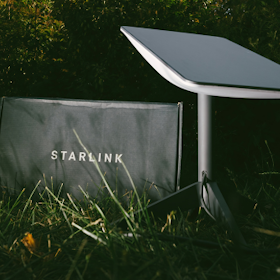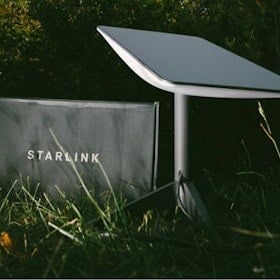.jpg)
Article Summary
The term “WiFi booster” is applied across-the-board to any devices that extend a WiFi signal.
- A WiFi booster is also called a WiFi repeater, and creates a new WiFi network to boost the signal in that area of your home.
- WiFi extenders further the existing network.
- WiFi mesh networks fuse your router and extender systems together, giving the signal fewer points of failure or latency.
There are a variety of WiFi boosters, though, and some are better suited to your needs than others. Here's a breakdown of the differences between different kinds of WiFi boosters, including repeaters, range extenders, and mesh networks.
What Are Wireless Boosters/Repeaters?
Wireless repeaters are the first generation of WiFi boosters. A repeater contains two wireless routers: the first intercepts the signal from your WiFi network and copies it to the second router, which then creates a new WiFi network to boost the signal in that area of your home.
Since the WiFi signal is replicated from your existing WiFi router, using a WiFi repeater doesn't increase your signal strength. It simply redistributes it to areas in your home or office that are challenging to reach.
One of the downsides of using a repeater is its higher latency, or the delay in your repeater communicating with your main WiFi network. Higher latency can result in lags while playing online games, streaming videos, or hopping on a video call with the family.
Another big difference here is that repeaters create a new wireless network, whereas an extender furthers the existing network.
What Are WiFi Range Extenders?
A wireless extender is a WiFi booster that sits between your wireless router and the location in your home or office where you want better wireless coverage. Similar to a WiFi repeater, an extender recycles your WiFi network's signal, but with two notable differences.
The first is that an extender taps into the existing network signal and amplifies it, rather than replicating it as an entirely new network. The second is that a WiFi extender uses a different wireless channel from the one currently used by your wireless router. In this way, it acts as a middleman to help push out a stronger signal with greater range.
One of the main challenges when setting up an extender is placing it in the right location. It must be close enough to your router so it can pinpoint the signal, but far enough so that it can amplify the signal to other areas of your home.
What Are WiFi Mesh Networks?
The new high-tech kid on the block is the WiFi mesh network. These node-based systems are designed to replace complicated router/hardware coordination—instead, mesh networks (such as Eero, Google Nest, and more) fuse your router and extender systems together, giving the signal fewer points of failure or latency.
In a mesh network, a single router connects directly to your modem, then communicates with different "nodes" that you plug into various areas of your home. Each node acts as a jump point for the others. In this way, the mesh system bounces the signal throughout your home using built-in radios to communicate between nodes, instead of having to reach all the way back to the router for signal. It's a much smarter and more sophisticated way to blanket your home with seamless wireless coverage.
Pros and Cons of Wireless Repeaters/ Booster
| Device | Pros | Cons |
|---|---|---|
| Wireless Repeaters/Boosters | Mimics existing WiFi signal Creates two different networks to connect to Helps signal reach “dead zones” in the home or office | WiFi signal will be the same strength as the original signal Increases latency |
| WiFi Extenders | Connect to your existing wireless network Amplifies existing signal | Difficult to set up Your devices will often stay on one until it's completely out of range |
| WiFi Mesh Networks | Node-based access points Wirelessly forwards traffic Easy to manage from a mobile app Automatic system updates, including security Uses one network name | More expensive Improved speed and strength aren’t necessarily guaranteed |
Of all the WiFi booster options, the mesh system gives you the best value, even if it’s more expensive than the old-school repeater and extender. The node-to-node makeup offers fast, even coverage throughout the entire home, and you can better control precisely where you need a signal boost.
If you’re on a budget, the WiFi booster and WiFi extender are still excellent options. Just bear in mind that many models haven’t been updated with current technologies. If the extender doesn’t automatically update its configuration, make sure to manually update your system by checking the manufacturer's web page for updates.
Do I Need A WiFi Booster?
If you find your videos don't stream as smoothly upstairs vs. downstairs, or your laptop gets the dreaded buffering wheel in your kitchen but not your office, you likely could use a signal boost. There are a number of common scenarios where a WiFi extender/booster is a huge help, including:
- You have a large home or a uniquely-shaped layout.
- Your router is located on a different floor of your home.
- You live in a high-density apartment complex with competing signals.
You can also map out your signal’s baseline strength before purchasing a new piece of hardware. Download a free tool and walk around your home to check for dead zones or areas with poor signal. In general, a result between -67 and -30 decibels (dBm) should deliver enough signal. When it dips under -67 or -70, it's time to consider an extender solution.
Outage, disruption, or in need of a booster?
Even the fastest internet service providers (ISPs) can run into service disruptions at extended ranges. We've put together guides for some of the biggest Canadian ISPs that will help you determine if you're experiencing an outage or if your service could benefit from a booster or extender.
Related Articles
Find Better Internet and Phone Plans
Hundreds of internet plans unpacked. All the facts. No surprises.
Internet Providers by Provinces and Territories
- Internet in Alberta
- Internet in British Columbia
- Internet in Manitoba
- Internet in New Brunswick
- Internet in Newfoundland and Labrador
- Internet in Northwest Territories
- Internet in Nova Scotia
- Internet in Nunavut
- Internet in Ontario
- Internet in Prince Edward Island
- Internet in Quebec
- Internet in Saskatchewan
- Internet in Yukon Territory





























